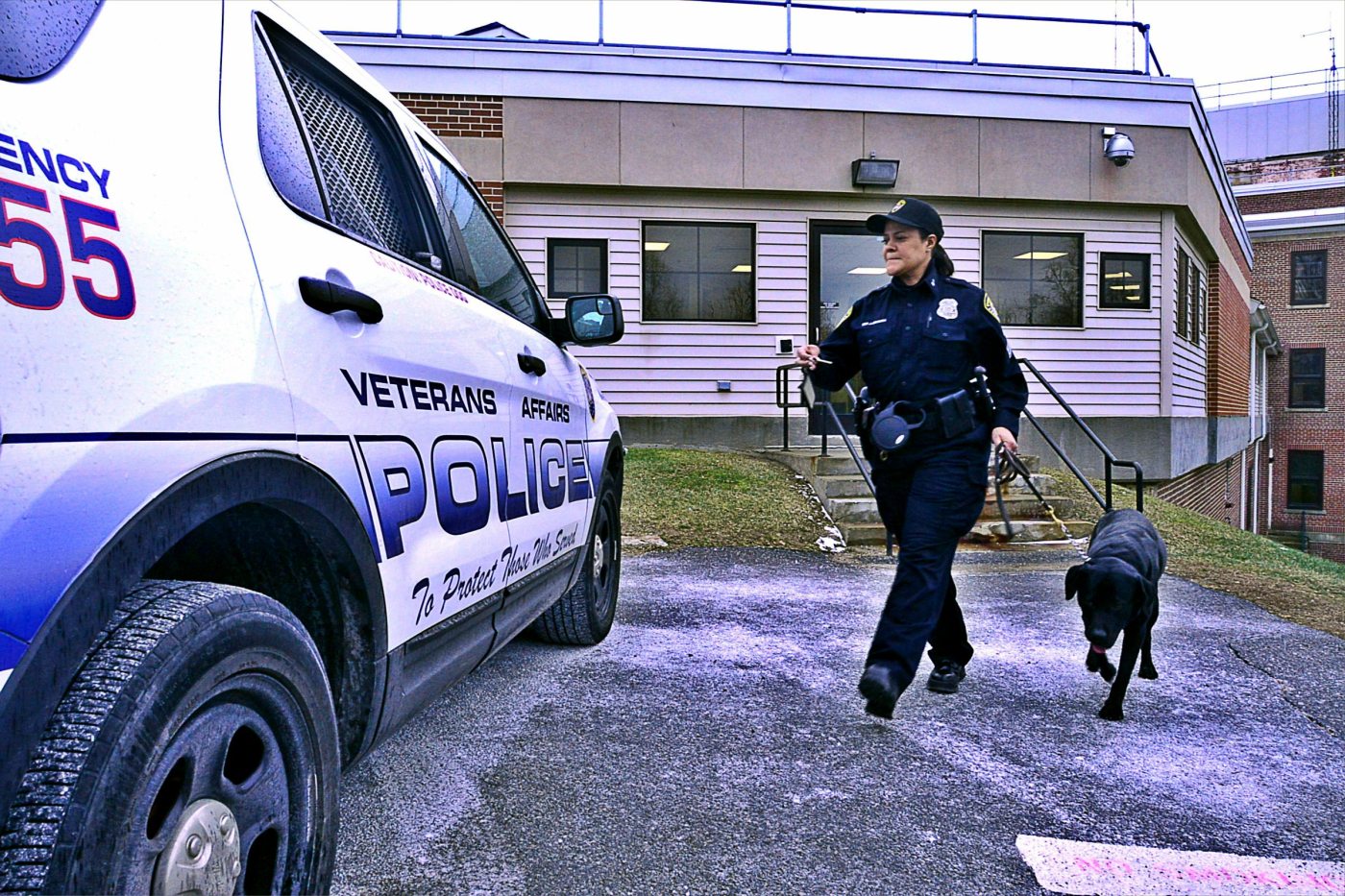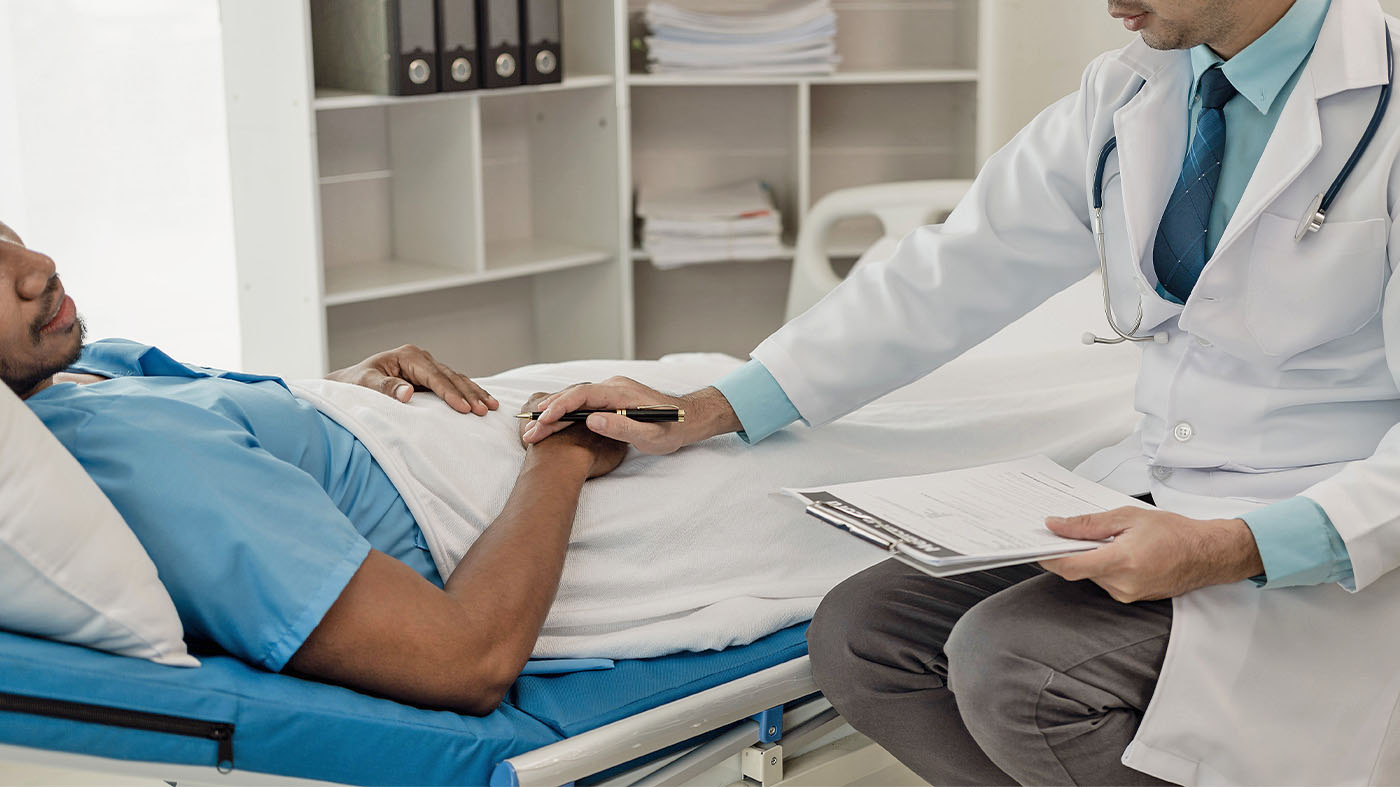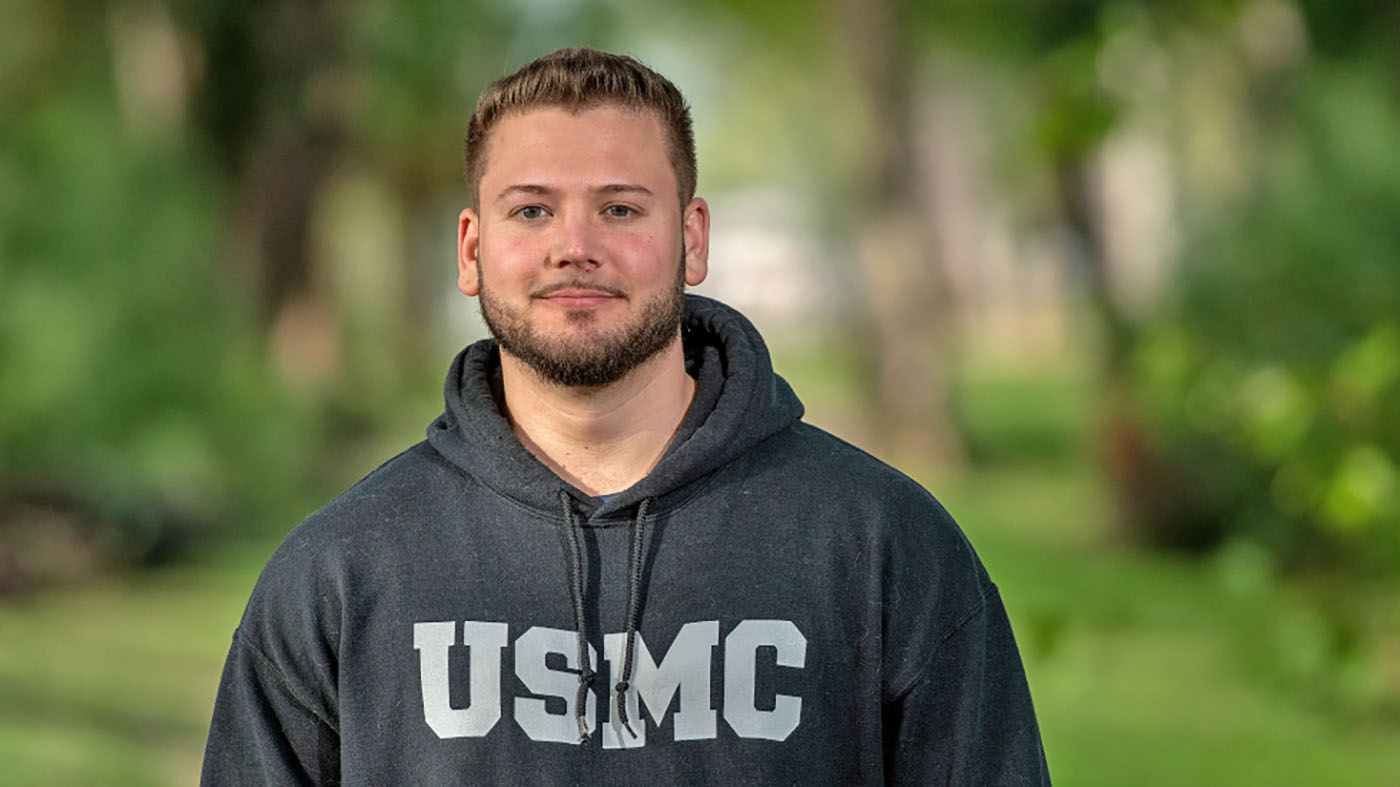
For VA Police Sgt. Josie Graham and her working dog, Hunter, a large black Labrador retriever, displays of warmth like this are routine occurrences in the two hospitals and seven clinics of the VA Hudson Valley Health Care System. They greet anyone who’ll stop and say “Hello.” However, Hunter and Graham are also performing another, more important mission for the VA Police: deterrence.
“The visual presence of the canine is just as valuable as helping to find narcotics,” Graham said. She added people seeing the dog helps stop crime. “If they’re up to no good and see the dog, they usually turn the other way.”
Hunter’s primary job involves his sniffer. With a keen nose and about six months’ worth of training, Hunter helps find patients who may wander away from the Montrose in-patient facilities. He also searches VA grounds and facilities for cocaine, heroin and other narcotics.
Graham, a U.S. Army Veteran from Newburgh, New York, has been a dog handler for about seven years. She grew up with a dog and wanted to become a Veterinarian. She joined the Army and worked as a veterinary technician for three years before retraining and joining the military police believing she would get her dog handling start there. She didn’t.
After the Army, she started with the VA Police. It took about six years, but she got her shot to be a dog handler with a sharp German shepherd named Bayne.
She and Bayne were celebrities in the Hudson Valley going to schools, visiting Boy and Girl Scout troops and other community organizations. Unlike military dog handlers and their canines, Bayne (and now Hunter) lived with Graham full time.
“People get bound to their pets, but I have an animal with me all the time. Just by his mere presence, he could potentially save my life whether he does anything or not. I’m responsible if something happens to him,” Graham said.
Something did happen: Canine Degenerative Myelopathy, a diagnosis dropped on the duo in 2014. Similar to ALS, it’s an incurable disease that attacked Bayne’s spinal cord. His decline was quick. At one point, Graham carried the shepherd around in a harness.
“To see that dog go from being so healthy to having to carry him around …” Graham said, her eyes welling with tears. “It’s hard because you want them around but you want to give them dignity in death because they gave you so much in life. It was just hard to let him go.”

Steadily, the two grew close. In the course of that time, Hunter received two months of narcotics training from the Yonkers Police Department in Yonkers, New York, and his patrol skills from the Town of Poughkeepsie, New York, Police Department. He was ready for duty.
“He picked up on the training a lot quicker than the other dogs, so it was nice to see that,” she said.
VA Police Chief Brian Pack said the VA community partnership with all of the surrounding law enforcement agencies is a benefit for both sides.
“We rely on them for assistance with law enforcement. The initial and monthly in-service training of the VA Police K-9 unit enforces the liaison and the commitment of the law enforcement agencies to share resources,” Pack said. “This is important in today’s world.”
Graham said she knows the work she’s doing has an impact. She told the story of her sister attending the 2015 funeral of a Veteran who lived in one of VA Hudson Valley’s Community Living Centers. When the funeral services ended, the family approached Graham’s sister.
“They wanted her to thank me for bringing by Bayne to his room because the Veteran loved when he came by,” Graham said. “When you do those things, sometimes you don’t realize the impact. I’d only met the family one or two times.”
With a bit more than seven years as a dog handler, Graham doesn’t see herself doing anything else, and doing it for the safety of Veterans makes it doubly rewarding.
“Once you do this work, it’s in your blood. Sometimes I think I was meant to do this. A lot of dog handlers feel that way. It changes your life, you know? It really changes your life.”
About the author: Jason Tudor is a public affairs officer with VA Hudson Valley Health Care System
Topics in this story
More Stories
VA and the American Kidney Fund work together to fight chronic kidney disease in Veterans.
Transitioning to civilian life can be difficult. Find ways to overcome suicide thoughts with VA and Veteran organizations resources.
In this week's #LiveWholeHealth video, learn how to incorporate mindful movement into your day with yoga and stretching to improve posture, reduce stress and boost mood.







I have my medical VA benefits and I was trying to get into the local clinic and it took 3 days for somebody to call me back and at that point I finally got someone to call me back and he told me there was a form I had to fill out he would mail it to me but he would call me back the next day this was just last week I’m very sick I’m disabled from a car accident but I have to disabilities from when I was in the Marines. I live in Arizona the state where the VA was so messed up and it took one veteran to talk and send a letter to the right person to get help for the veterans here and I’m grateful the he did what he did but it doesn’t seem that things have changed a whole lot. I have private insurance but I was trying to use my medical benefits as was adjusted by a veteran that is helping me apply for my disability benefits. To keep it short from this point on I will say I have private insurance that is supposed to be paid for by the state of Arizona but now I have to contact Social Security to find out what happened to $156. I don’t understand let me rephrase that they don’t understand why some of the people that are disabled are getting better because the stress that is created over stuff like this. Thank you to all the military people past present future for defending this country god bless you all Semper Fi!
Great story on the VA dog and handler. Well trained both of them. Perhaps the author could do a piece on how the Secretary and the 1000 or so asst. secretarys could benefit from a similar program.
I received a email inviting me to FACEBOOK chat about burial benefits and surviver benefits.
Has anyone thought that the older veterans are not members of social media programs? No. Does the VA have an
alternative for us not using social media in any form?. We talk to each other and our friends.
A reply would be the least the VA could give me. I have called over 27 numbers at the VA and no one knows who to talk
to about this.
The VA can have dogs on VA medical/dental/clinic sites but deny veterans the use of their service dogs on those same non-sterile sites? Wow the VA can really mess it up when it wants to.
My (legal) SERVICE DOG accompanies me to every appt. I go to at VA. There is a difference between a pet or Emotional Support Animal, & a TRAINED TO SUPPORT (MY) DISABILITY
SERVICE DOG. The VA doesn’t HAVE to follow the ADA, but I have been told they have been advised to CLOSELY adhere to it. Hope this helps!
To the credit of Sec. McDonald I believe that has changed recently. I was faced with a similar problem when scheduled a C&P exam requiring an overnight stay at an out of town VAMC. My SD was an issue until I contacted Bob’s response team. Locally I have no problems and did not understand why policy differs between various facilities. There was resolution in my case and have since seen that it is now VA policy nationwide to allow service dogs at all locations. But just to cover my self I had the PC doc put it in my records so there can be no question.
Why in hell does the Va need a police force? In fact whey do so many federal agencies need cops? Is this just a spot to dump retired military types? Nice heart=warming story with this person and her two doggy companions but are they really necessary?
I was at a VA facility once when a drug addict decided to freak out; thanks to 4 human VA cops & 1 VA police dog, nobody got hurt, except the addict, who got chewed up pretty well.
YES, VA DOES NEED POLICE & DOGS! THANK YOU FOR BEING THERE!
There has been an adverse environment within the VA many veterans have had to deal with over the years and as a result some vets have found retaliation necessary. But also remember a veteran was trained to take the life of another human being. It is a Catch 22-can’t be helped, can’t be ignored.